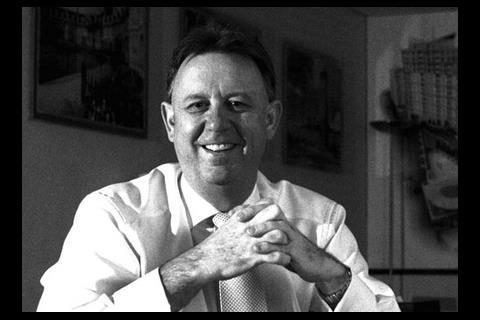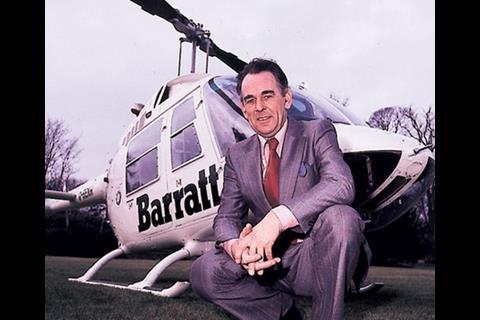Company becomes BritainŌĆÖs biggest housebuilder after BritainŌĆÖs biggest housebuilding takeover, and in the process moves upmarket and enters the FTSE 100
Barratt Homes has made an audacious break with its traditions this week with the purchase of rival volume housebuilder Wilson Bowden for ┬Ż2.2bn.
Mark Clare, the chief executive who was installed four months ago, has reversed BarrattŌĆÖs well established policy of growing organically rather than by aquisition. The firm has not bought another business for the past quarter of a century.
And the reversal could hardly be more dramatic: the deal is the biggest merger in British housebuilding history, and will create a company with a direct workforce of 7,500.
Clare has also sought to distance Barratt from the cheap-and-cheerful image that it acquired during its eighties heyday. Clare has emphasised that he wants to retain the upmarket David Wilson Homes brand, which will remain a division of Barratt.
Ian Robertson, Wilson BowdenŌĆÖs chief executive, said: ŌĆ£David Wilson Homes gives them something that they donŌĆÖt have at the moment. They feel under-represented at the top end of the market.ŌĆØ
He added that Barratt would retain Wilson Bowden Developments, the Leicestershire companyŌĆÖs commercial arm, as a separate division.
A Barratt spokesman said: ŌĆ£One of the strategic wins is to get into commercial development. At the moment, Barratt has to farm out commercial development on mixed-use schemes.ŌĆØ
Barratt has told the City that it will deliver ┬Ż45m worth of efficiency savings in the second full year after merger.
Barratt has not bought another business for the past quarter of a century
The spokesman said no decision had yet been taken about the level of redundancies, or whether Barratt would its move its headquarters from its historic base in Newcastle upon Tyne.
Robertson said that although redundancies could not be ruled out, there would not be wholesale sackings at Wilson BowdenŌĆÖs head office in Ibstock, Leicestershire, which will remain the headquarters of the David Wilson division.
He said: ŌĆ£If you put the two together, you have a better balance. We werenŌĆÖt in north-east or south-east England. Both parties have said upfront that that itŌĆÖs going to be greater than the sum of the parts.ŌĆØ
The merger will increase BarrattŌĆÖs valuation to ┬Ż4.3bn, its annual housing output from 14,000 homes a year to 19,700 and number of plots from 70,500 to 103,555.
It will also increase BarrattŌĆÖs landbank from 2,800 acres to 12,100 and raise the average selling price of Barratt homes by nearly ┬Ż10,000 to ┬Ż175,400.
The Wilson Bowden tie-up will change BarrattŌĆÖs geographical profile. At present, 20% of its homes are developed in the Midlands. This will rise to 28%.
David Wilson, Wilson BowdenŌĆÖs co-founder and chairman, will net ┬Ż730m from the sale, which values his business at ┬Ż2.2bn. He will also own 6% of Barratt.
The agreed sale puts a 23% premium on Wilson BowdenŌĆÖs closing price on 24 November, the day before the company announced it was for sale.
Postscript
For the latest acquisitions, go to




























No comments yet